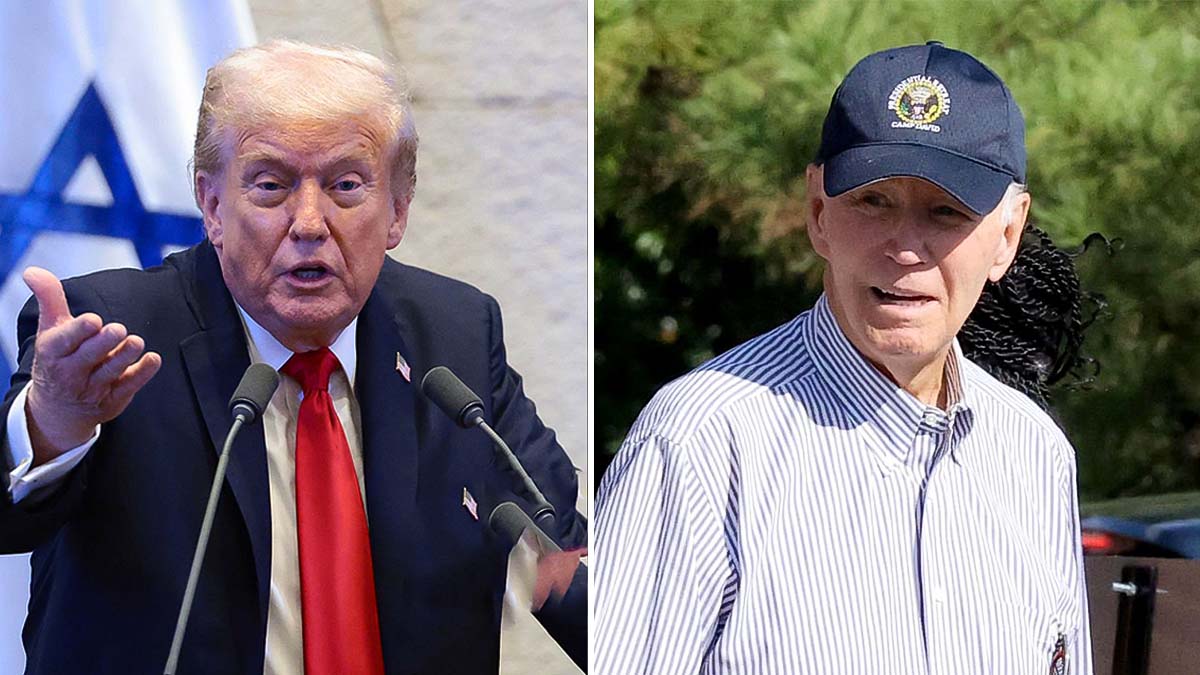In a stunning display of cross-administration tension, former President Joe Biden and ex-Secretary of State Antony Blinken are asserting that the groundbreaking Gaza ceasefire deal announced by President Donald Trump yesterday owes its success to the meticulous groundwork laid during their tenure. The claims have ignited a firestorm of criticism from Trump allies, who dismiss them as desperate revisionism amid a historic Middle East breakthrough that has halted one of the deadliest conflicts in recent history.
The ceasefire, hailed by Trump as a “monumental victory for peace,” was unveiled during his high-profile address in Cairo on October 13. Brokered by U.S. envoys Steve Witkoff and Jared Kushner, the agreement ends the Israel-Hamas war that erupted with Hamas’s brutal October 7, 2023, attack, which killed over 1,200 Israelis and took 250 hostages. Under the deal, Hamas will release the remaining 20 living Israeli hostages in phased exchanges, disarm within a newly established buffer zone inside Gaza, and allow for international oversight of reconstruction efforts. Israel, in turn, commits to a full withdrawal and unrestricted humanitarian aid flows. Trump emphasized no concessions to Palestinian statehood demands, crediting his “peace through strength” doctrine, including pressure on Iran and expanded Abraham Accords partnerships with Arab nations like Egypt, Qatar, and Saudi Arabia.
Yet, just hours after Trump’s announcement, Blinken fired off a detailed 12-part thread on X (formerly Twitter), praising the outcome while insisting it was “built on the foundation we constructed.” As Secretary of State until January 2025, Blinken detailed how the Biden administration spent months negotiating a “clear and comprehensive post-conflict plan” involving transitional governance by Arab states and international actors, U.S. security guarantees, and pathways to Palestinian Authority control. “We left it in a drawer for the incoming team,” Blinken wrote, referencing exhaustive talks with Israeli Prime Minister Benjamin Netanyahu, Palestinian leaders, and regional powers. He pointed to a January 2025 Biden-brokered truce that freed 135 hostages but crumbled amid renewed fighting, arguing Trump’s deal is “essentially the plan we developed – with tweaks.”
Biden echoed these sentiments in his own X post, expressing profound relief for the freed hostages and Gaza’s suffering civilians. “My Administration worked relentlessly to bring hostages home, deliver aid, and end this war,” the 82-year-old former president stated. “I commend President Trump for getting it over the finish line, but this reflects dogged American diplomacy from day one under our watch.” In private briefings reported by Politico, anonymous Biden officials described mixed emotions: elation at the progress but irritation that Trump “sat on it for months” after taking office, only acting post-inauguration. They claim their isolation of Hamas through sanctions and Arab alliances created the leverage Trump ultimately wielded.
The backlash was swift and scathing. Aboard Air Force One en route to a Florida rally, Trump lambasted Blinken as a “lying loser” and tied Biden’s foreign policy to global chaos, including the ongoing Russia-Ukraine war. “They had four years and turned the Middle East into a powder keg – over 46,000 Palestinians and 1,700 Israelis dead on their watch,” Trump thundered to reporters. “My team closed the deal because we don’t negotiate with terrorists; we crush them.” White House Press Secretary Karine Jean-Pierre (retained briefly in the transition) declined comment, but Trump surrogates like Kushner took to Fox News, arguing Biden’s approach was “weak,” reliant on endless talks without enforcing disarmament or sidelining Iran-backed militants like Hezbollah.
Conservative outlets amplified the fury. The New York Post ran headlines blaring “Sour Grapes: Dems Steal Trump’s Thunder,” while RedState commentators called Blinken’s thread “shameless gaslighting.” On X, the topic exploded with over 500,000 posts by midday October 14, trending under #GazaCreditGrab. Users mocked the claims relentlessly: “Biden couldn’t ceasefire his way out of a nap,” quipped one viral account with 2 million views. Pro-Trump influencers shared clips of failed Biden-era talks, contrasting them with images of jubilant hostage reunions in Tel Aviv.
Analysts see substance in both narratives, underscoring a rare bipartisan continuum in U.S. diplomacy. The Biden team did advance multilateral frameworks, securing partial ceasefires and $15 billion in pledged Arab aid for Gaza’s rebuild – estimated at $50 billion needed to restore infrastructure ravaged by 24 months of bombardment. Experts like former negotiator Dennis Ross, writing in Foreign Affairs, note that Trump’s election victory deterred Hamas escalations, allowing envoys to push through sticking points like the buffer zone, absent in prior drafts.
Still, critics highlight Biden’s hesitancy: his administration paused some arms shipments to Israel amid domestic protests but faced accusations of enabling prolongation by not demanding immediate Hamas capitulation. A senior Israeli official, speaking anonymously to The Guardian, credited the “unlikely handover partnership” during the transition, where teams shared intel on hostage locations gleaned from Mossad and CIA ops.
As of this evening, the ceasefire holds firm. Convoys of aid trucks crossed into Gaza via Rafah, delivering food and medical supplies to 2 million displaced residents. Hostage families wept in joy at Ben Gurion Airport, while Hamas leaders in Doha confirmed compliance pending phase two talks on permanent peace.
This credit war underscores Washington’s polarized lens on foreign policy triumphs. With midterms looming, Democrats frame it as validation of their persistence; Republicans as proof of Trump’s decisive edge. Yet, for war-weary Israelis and Palestinians, the debate rings hollow – peace, fragile as it is, has finally dawned. Monitoring continues, with U.N. observers deployed to enforce terms. If sustained, it could reshape the region; if not, the blame game may only intensify.
